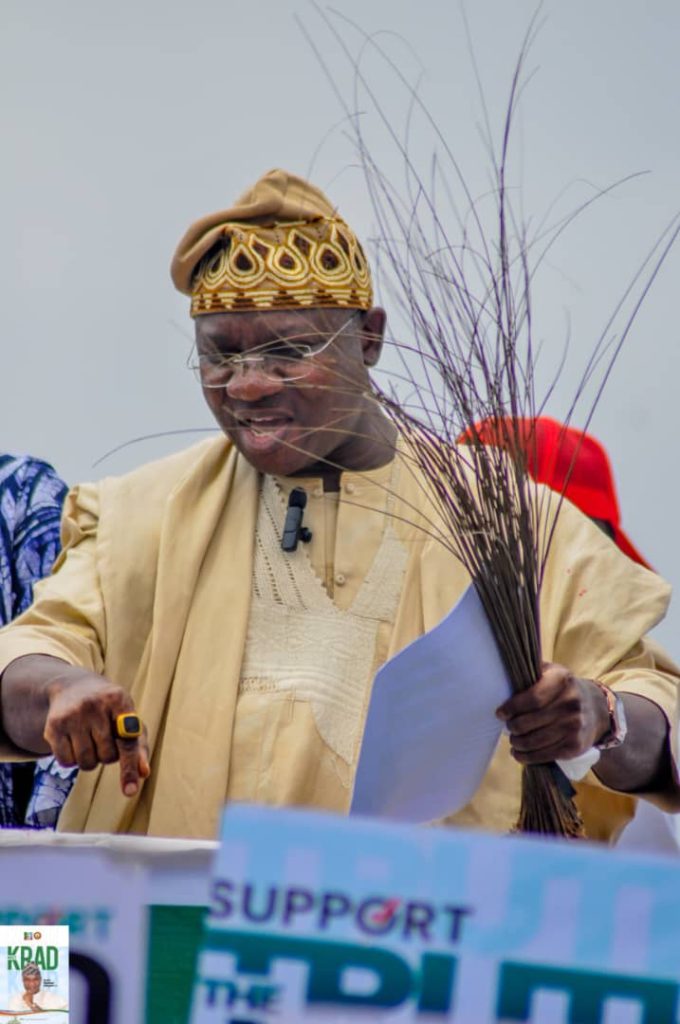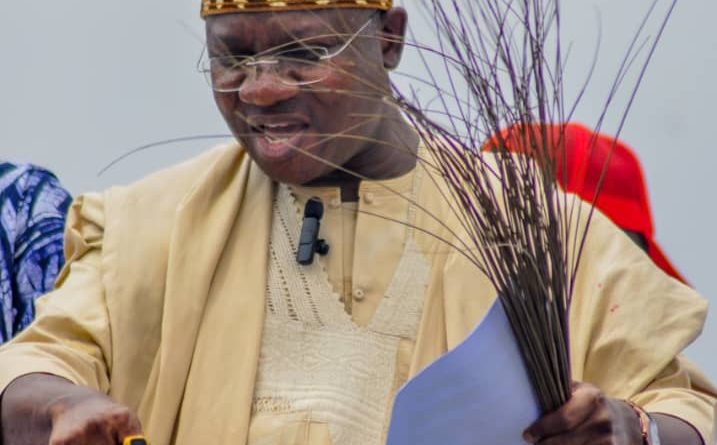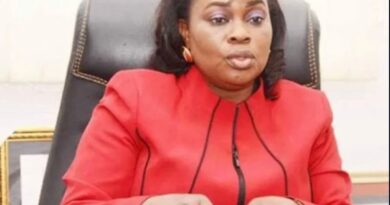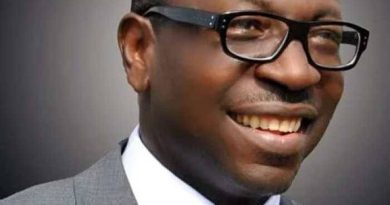Osun 2026: The Governor Osun Deserves,By Abimbola Tooki
Osun State is a paradox of abundance and lack, of blessings untapped and opportunities squandered. Created in 1991 with high hopes of becoming a shining example of progress, Osun today stands as a state blessed by nature but denied by leadership. It is home to some of Nigeria’s most fertile soils, rich deposits of gold and other solid minerals, a vibrant cultural heritage that could rival any in Africa, and human capital that is vast and educated. Yet, decades later, the story of Osun is one of unfulfilled potential, sporadic flashes of development, and a people yearning for transformation.
The truth is sobering: Osun has not matched the promise of its birth. The reasons are clear. While past governors have contributed in their own ways, from the late Senator Isiaka Adetunji Adeleke to the incumbent Ademola Adeleke, only few have delivered close to the radical vision, creativity, and courage required to unlock Osun’s greatness. Instead, the state has been trapped in cycles of underdevelopment, heavy debt, and shallow projects that scratch the surface but do not touch the foundation.

As 2026 beckons, the question is no longer whether Osun needs change; it is what kind of leader can deliver it.
The Weight of Expectations
With the level of federal allocation and additional revenues available to states today, Osun should by now be a hub of agro-industrial production, a centre for cultural tourism, and a model for mineral resource development in Nigeria. But when political elders and stakeholders look at the balance sheet of achievements vis-à-vis the funds received, they see a gap that is too wide to ignore.
This mismatch between resource inflow and developmental output has fueled deep frustration among citizens. The consensus is clear: Osun is underperforming, and the time has come for bold leadership, not cosmetic governance.
Governor Ademola Adeleke enjoys popularity with his dancing steps and twisting waist, but popularity is not the same as transformative leadership. The state needs more than a “dancing governor” who wins hearts with style; it needs a strategist who can win the future with substance.
Osun must now search for a governor with vision, intellect, and untainted character. Someone who will consolidate on legacies where they exist but also break new ground, unafraid to innovate and bold enough to disrupt.
Beyond Sentiment: The Politics of 2026
Otunba Iyiola Omisore, himself a political heavyweight, recently struck a chord when he remarked in Osogbo that if the capital city cannot present a credible candidate, its people should support his candidacy. His statement, though self-serving, carries weight. The 2026 election is not about “whose turn” it is; it is about “who can deliver.”
Political arithmetic tells us that three blocs will decide the election: Osogbo/Olorunda in Central Osun, Ede in the West, and Ife in the East. With Governor Adeleke’s natural advantage in Ede, the APC must respond with strength from Osogbo or Ife. Anything less will be political suicide.
Osogbo and Olorunda have consistently produced some of the highest voting numbers in Osun’s electoral history. To ignore this reality is to hand the opposition an easy victory. Thus, the eyes of stakeholders, particularly within the APC, are fixed on Osogbo for salvation.
K-Rad: A Blueprint for Transformation
Among the aspirants, one name has continued to resonate with seriousness of purpose: Kunle Rasheed Adegoke (K-Rad), SAN, a prominent son of Osogbo. Unlike others who rely solely on political godfathers or inherited popularity, K-Rad has distinguished himself with intellect, vision, and a carefully researched blueprint for Osun’s renewal.
During his declaration, he did not merely make promises; he unfolded strategies. His agricultural development agenda is bold, designed not just to feed Osun but to position it as a food basket for Nigeria and a player in global agro-exports. Having studied farming models in over 20 U.S. states, K-Rad envisions large-scale mechanized farming, agro-processing clusters, and a framework where local farmers earn higher returns, investors find profitable partnerships, and Osun becomes a net exporter of food and agro-products.
On solid minerals, he speaks of a structured and transparent mining sector, where gold and granite are not exploited recklessly but harnessed through partnerships that generate wealth for communities and revenues for the state.
But his vision extends further.
Tourism: Turning Heritage into Wealth
Osun is a cultural giant, blessed with the Osun-Osogbo Sacred Grove (a UNESCO World Heritage Site), the Olojo Festival in Ife, and countless historical landmarks. Yet, these treasures remain underdeveloped, attracting tourists in trickles rather than torrents.
K-Rad’s blueprint proposes a complete overhaul of the tourism sector: modernizing facilities at key sites, building access roads, investing in hospitality infrastructure, and aggressively marketing Osun as the “Cultural Capital of Nigeria.” He sees tourism not as an afterthought but as a major economic driver that can create jobs, stimulate small businesses, and place Osun on the global map.
Education: Restoring the Pride of Learning
Osun once boasted of producing some of the brightest minds in Nigeria, but declining infrastructure, inconsistent policies, and poor funding have eroded its educational pride. K-Rad has outlined an education agenda focused on three pillars:
1. Quality Infrastructure – renovating schools, equipping laboratories, and integrating digital learning tools.
2. Teacher Empowerment – training and welfare programs to ensure teachers are motivated and effective.
3. Skills and Innovation – reorienting the system to produce problem solvers, not just certificate holders, with a strong emphasis on technical and vocational training.
Infrastructure: Building the Framework of Growth
Without roads, power, and digital connectivity, no economy can thrive. Osun’s infrastructure deficit is glaring. K-Rad proposes a targeted approach:
Expanding road networks to link farmlands with markets. Encouraging independent power projects for industrial hubs.Digitizing governance to reduce leakages and increase efficiency.His blueprint ties infrastructure to economic growth, ensuring that every naira spent opens doors for commerce, jobs, and social mobility.
The Task Before Elders and Stakeholders
As Osun marches toward 2026, one thing is clear: sentiment will not save the state. The APC elders and leaders must resist the temptation of “business as usual.” The body language of former governor and current minister Gboyega Oyetola will play a decisive role, but ultimately, the choice must be about competence, credibility, and capacity.
A weak candidate will guarantee another four years of stagnation. A strong, visionary candidate will ignite a renaissance.
The Governor Osun Deserves
Osun State deserves a governor who sees beyond the immediate and thinks generationally. A governor who can transform abundant resources into prosperity, who can elevate education, harness tourism, and modernize agriculture. A governor who can inspire confidence, attract investors, and mobilize the people toward shared greatness.
The governor Osun deserves in 2026 is not one chosen by accident or sentiment, but one chosen deliberately because the future of a state blessed beyond measure must never again be left to leaders without vision.ENDS




